Fieldwork
This listing expired on May 26, 2024. Please contact admin@fieldsciences.org for any updated information.
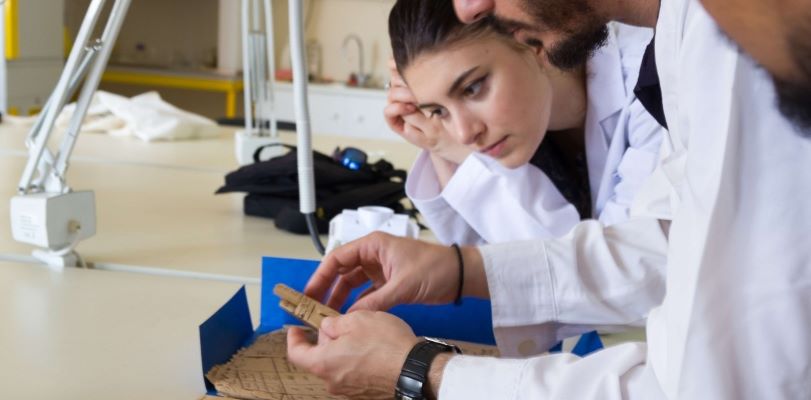
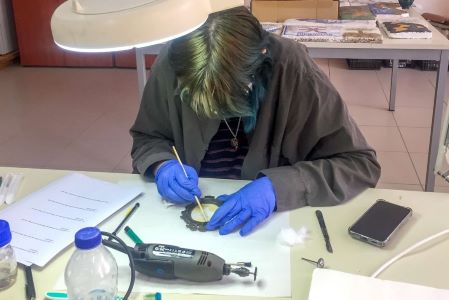
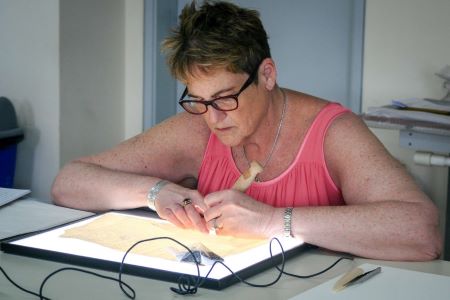
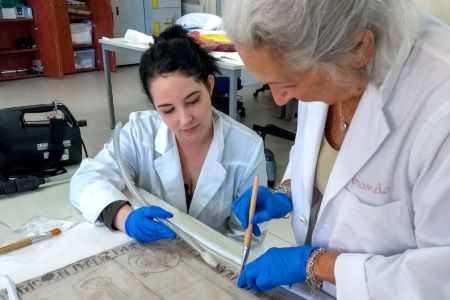
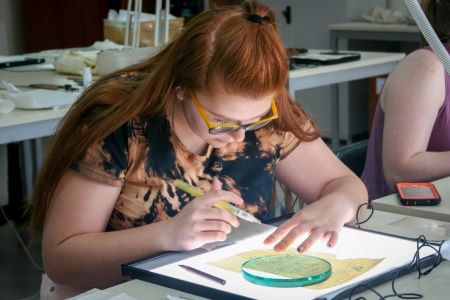
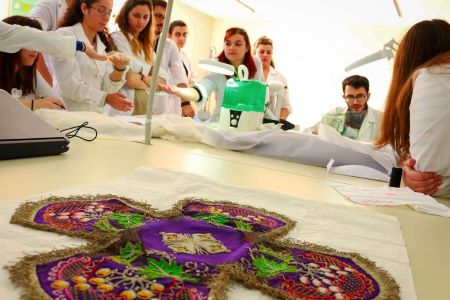
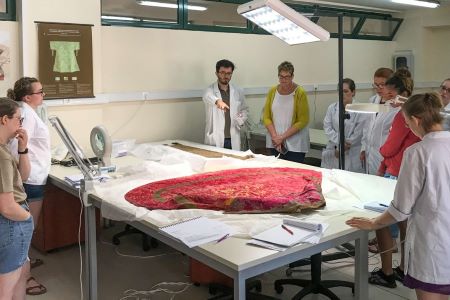
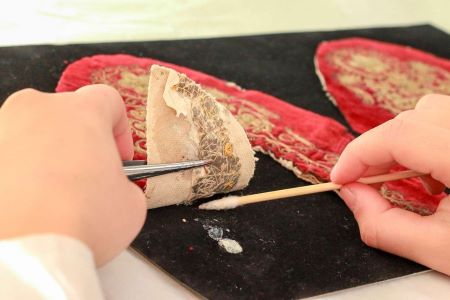
Location: Zakynthos, Greece
Season: May 26, 2024 to June 15, 2024
Session Dates: Single Session
Deadline Type: Rolling
Website: https://www.fieldsciences.org/program/2024-greece-zakynthos-conservation-survey/
Discount for AIA members: None
Program Type:
Field School
RPA Certified:
No
Affiliation:
Center for Field Sciences, Balkan Heritage Foundation & Ionian University
Project Director:
Assoc. Prof. Christos Karydis, Ionian University & Dr. Angela Pencheva, Balkan Heritage Foundation
Project Description:
This is a beginner program, introducing students to the interventive and preventive Conservation of textiles, paper & metal objects. This field school is hosted by the Department of the Environment of the Ionian University, Zakynthos campus (Greece). The program provides a unique opportunity for students to gain comprehensive knowledge and hands-on experience on the conservation and preservation of organic and inorganic cultural objects. Participants will be guided through the history and technology of ecclesiastical, historical, ethnographic textiles, papers and metal objects and stages of their study, conservation, and documentation. This program will take place at the labs of the Division Conservation of Antiquities & Works of Art at the Ionian University.
During the program, students will work with authentic and replicas of textiles, archival materials, and metal objects. The project includes three modules: practical work in the documentation and restoration of textiles, paper, and metal; lectures, training, study visits and excursions to the General Archives of Zakynthos (paper) and to the Ecclesiastical Museum of St. Dionysious (textiles & metal).
The workshop enables participants to gain comprehensive knowledge and hands-on experience in paper, metal and textile conservation, documentation, and scientific analysis. Students will explore the principles of material conservation, methods, theories, and will learn how to use optical microscopy, X-Ray Fluorescence (XRF) and X-Ray Diffraction (XRD) instruments for conservation work.
Period(s) of Occupation: Various periods
Notes:
Tuition cost is $4,477, including room & partial board and 6 semester credit units
Project Size: 1-24 participants
Minimum Length of Stay for Volunteers: Full session
Minimum Age: 18 years old
Experience Required: There are no prerequisites for participation in this field school but note that conservation work requires good manual dexterity skills and ability to carry out delicate bench work. Students will receive hands-on training in conservation work and will spend most of the time learning how to conserve paper, textile, and metals in a lab setting. Students will be taught how to use a variety of laboratory procedures and equipment – from microscopes to analytical instruments. Conservation work is slow and may be tedious. It requires patience and focus. This is an introductory course so we will cover all the very basic elements of conservation ethnographic work.
Room and Board Arrangements:
Students will stay at the family-run Yria Hotel, located near the historical center of Zakynthos. The rooms are comfortable, with 2-4 beds, bathrooms with shower and WC, TV, 24-hour room service, lockers, hair dryers, LAN plugin connection, A/C and a fridge. Laundry service and free Wi-Fi are available at the hotel. Participants are not expected to bring any additional equipment, linen, or towels. Single rooms are available upon request.
The program covers the cost of breakfast only, during weekdays. Other meals during the week and all meals during the weekend are not included in tuition cost. There are plenty inexpensive and mid-range local restaurants that offer a typical three-course Greek meal for 10-20 Euros (equivalent to $11-22).
Academic Credit:
6 Semester Credit units from Culver-Stockton College, our School of Record
The AIA is North America's largest and oldest nonprofit organization dedicated to archaeology. The Institute advances awareness, education, fieldwork, preservation, publication, and research of archaeological sites and cultural heritage throughout the world. Your contribution makes a difference.